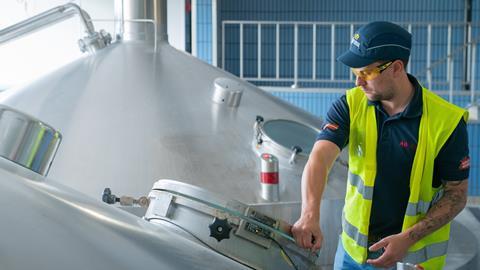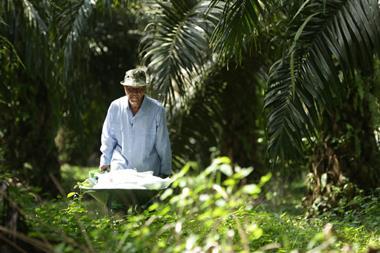While recruiting skilled labour into the food and drink manufacturing industry has long been a challenge, it has been exacerbated by recent events. Now, the Welsh Government is pulling out all the stops to address the issue head-on.
In an article on its website last year, US recruitment company Kane Partners noted that the food and beverage industry, while involving a “vast collective of organisations that supply products to both business and consumers all over the world”, needs skilled workers at every level almost daily.
The issue is not a new one and certainly not confined to the US. Back in 2013, concerns were raised that the food industry in the UK was missing out on young talent and, ever since, there have been concerted efforts to attract more workers – and youngsters in particular – into an increasingly ageing workforce.
As the UK’s largest manufacturing sector, the food and drink industry employs over 440,000 people directly across the UK and employment in the sector has grown by 19% over the past decade. Yet the labour market in the industry has been significantly challenged over the past two years, with seasonal shortages resulting from Brexit and around 290,000 full-time workers leaving the industry since the start of the pandemic, according to exclusive ONS data recently published in The Grocer.
At the same time, interest in and demand for clear food provenance has grown, placing a greater responsibility on manufacturers to step up. And since the onset of Covid-19 in particular, shoppers have shown a greater willingness to shop locally and spread their shopping habits across different retailers and, increasingly, online.
So the pressure for the food and drink industry to recruit skilled and loyal workers has potentially never been greater.
Breathing new life into Wales’ workforce
Over in Wales, the Welsh Government has decided to take proactive moves to tackle the situation. A new campaign, Food Workforce Wales – delivered by Food Skills Cymru (Lantra) on behalf of the government department Food & Drink Wales – has been launched early this year to encourage people to consider a career in Wales’ growing food and drink industry.
With the Welsh Government aiming to grow the local food and drink industry to £8.5bn and increase the number of employees in the sector who receive the Welsh Living Wage to 80%, both by 2025, there is a concerted effort to lead on promoting the industry as a fulfilling and diverse place for people to seek a long-term career no matter what part of the supply chain they are interested in. Food manufacturing, in particular, is a focus at this initial stage. Where there are skills gaps, Food Skills Cymru (along with a wide range of other offers) assists those entering the industry or wishing to upskill further.
It’s a challenging recruitment task. As Sarah Lewis, deputy director at Lantra Wales and helping to lead the charge on Food Workforce Wales, points out, one of the biggest problems for recruitment is the perception of the industry. “We have to show people that it’s not all about blue hairnets and white wellies,” she says. “There are jobs at every level of the industry – for example, marketing and HR advisors – but they [people with these skills] don’t consider food and drink manufacturing as an option.”
Yet, from apprenticeships and learning programmes, operational and customer-facing roles to leadership and management, there are plenty of opportunities.
Working closely with industry, the Food Workforce Wales campaign aims to support businesses as they grow by showcasing the diverse range of roles that can be taken up to ensure the success of Welsh food and drink manufacture. It is targeted across the board, from recent school leavers and college or university graduates to career changers, and invites manufacturers with vacancies to fill to get involved.
To support this, Food Skills Cymru has already taken several steps including developed an online jobs noticeboard for the industry, which went live in June 2020, while working with the regional Department of Work and Pensions to circulate job notices to local job centres.
Meanwhile, video case studies promote jobs available and illustrate the range of sectors that people can work in.
Case study 1: AB InBev (Magor Brewery)
In Newport, Budweiser Brewing’s Magor site has a highly skilled and diverse workforce of more than 500 employees. The company is continuing to invest in helping its workers develop new skills, which plays an important part in both the future of the business and its community.
Lloyd Manship, brewery manager, says: “We invest heavily in our apprenticeship scheme; for me that is absolutely critical, especially having progressed through the business myself. I have seen first-hand the importance of investing in people.”
Case study 2: South Caernarfon Creameries
At South Caernarfon Creameries, which produces 17,000 tons of cheese a year, the jobs are varied and there are plenty of opportunities to develop with the business, says managing director Alan Wyn-Jones. “We’ve doubled in size over the past five years, so it’s important that we have people who develop and grow with the business.”
Elwyn Jones, compliance manager at the company, points to the fact that it’s not just about making and packaging cheese. There is plenty of variety, including engineering, mechanics, driving and working in the laboratory, for example.
Filling the skills gaps
For businesses interested in plugging skills gaps, Lantra can work directly with manufacturers on skills diagnostics. Once done, these companies can then apply for funding to help upskill workers or recruit the right talent into the right roles.
Now, says Lewis, companies are trying lots of different ways to attract talent into the industry, including altering shift working patterns to potentially recruit mothers with childcare responsibilities. “The campaign will also be able to target different groups, such as Afghan refugees or career changers, promoting the fact that there are opportunities on every level, not just lower-skilled labour,” she says. “Even if people do not have the right skill set, companies can employ people whom they consider to have the right attitude and are willing to work, and Lantra can help to train them.”
Overall strategic vision
All of this activity is housed within Food and Drink Wales’ 2021 strategic vision for having a food and drink sector with a global reputation for excellence and one of the most environmentally and socially responsible supply chains in the world. Part of that goal is Fair Work Wales, where all employees are fairly rewarded, heard and represented, as well as feeling secure and respected.
While this might seem ambitious, there is clear argument, particularly post-Covid, for investing in people. Writing in the HR Daily Advisor in 2020, Katie Stricker, chief coaching office at US firm Sayge, noted: “Because productivity and profitability depend on talent, high-performing companies know that investing in their people drives better outcomes. The added benefit is individual growth and job satisfaction in a time when businesses cannot afford to lose key talent.” It seems that Wales has taken a similar message to heart… and is running with it.
Learn more about the Food Workforce Wales campaign here.
























